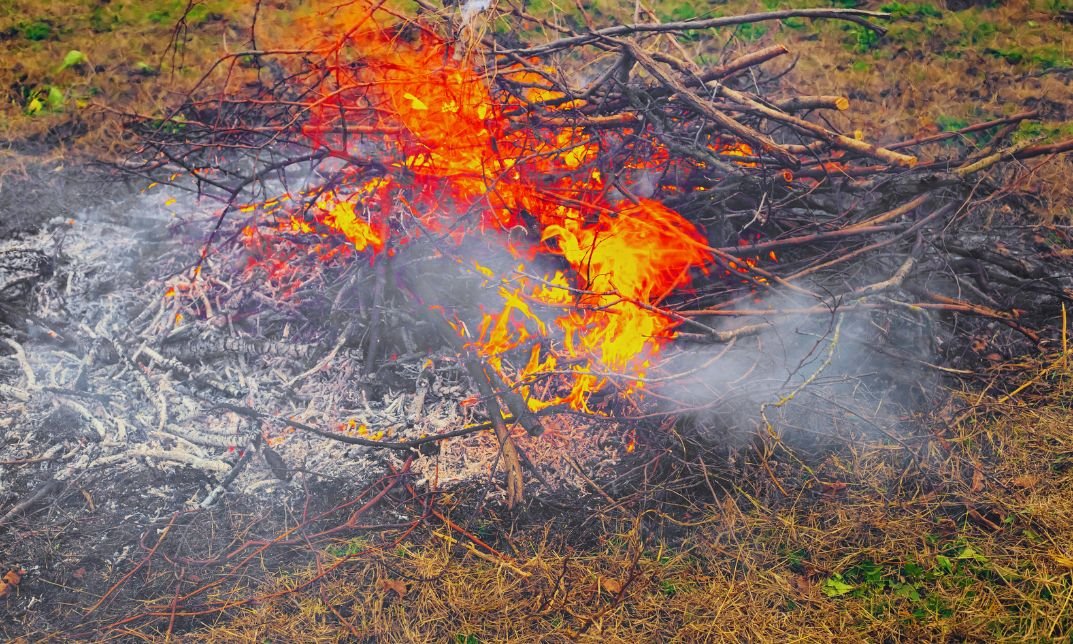Subtotal:
£101.97
If you’ve ever watched a lifeguard at work and thought, “That looks amazing,” you’re not wrong. Lifeguarding isn’t just a job — it’s about keeping people safe, staying active, and being part of something that genuinely matters.
Before you can jump in, you’ll need the right lifeguard qualification. In the UK, most pool lifeguards go for the NPLQ (National Pool Lifeguard Qualification). If you’d rather work by the waves, you’ll need the NVBLQ (for beaches). There’s also the STA Pool Lifeguard course, which many centres accept too.
During training, you’ll learn everything from rescues and first aid to CPR and how to use a defibrillator (AED). You’ll practise how to stay calm when everyone else panics and how to spot danger before it happens.
It’s real, practical, and hands-on. By the end, you won’t just be someone who loves the water — you’ll be someone who protects it.
What Is a Lifeguard Qualification?
A lifeguard qualification is what proves you’ve got the right skills to keep people safe in and around the water. It’s not just a certificate — it’s your proof that you know what to do in an emergency and how to stay calm under pressure.
In the UK, most pool lifeguards train for the RLSS UK National Pool Lifeguard Qualification (NPLQ) — that’s the main one recognised by pools and leisure centres across the country. If your goal is to work by the sea, you’ll need the National Vocational Beach Lifeguard Qualification (NVBLQ) instead. Many swimming pools and training centres also accept the STA Pool Lifeguard qualification, which teaches the same core skills.
All of these qualifications cover the same essentials: rescue techniques, first aid, CPR, AED use, and safe supervision of swimmers. By the time you’re done, you’ll know how to act fast, think clearly, and handle real-life situations — the kind of training that could genuinely save someone’s life.
Why You Need One to Work as a Lifeguard
You can’t just show up and call yourself a lifeguard — you need proof that you can actually keep people safe. Here’s why a lifeguard qualification is essential:
- It’s a legal and safety requirement. Most pools, leisure centres, and beaches can’t employ you without a valid lifeguard certificate.
- It keeps everyone protected. Your training makes sure you know what to do in emergencies — from rescues to first aid.
- It’s needed for insurance. Employers must show that all lifeguards are properly trained and certified to meet safety standards.
- It’s the industry standard. The RLSS UK NPLQ (for pools) and NVBLQ (for beaches) are recognised across the UK and respected by all major employers.
- It shows you’re professional. Having your qualification proves you’ve got the skills, the discipline, and the confidence to do the job right.
Simply put — no qualification, no lifeguard job. It’s what turns you from a good swimmer into a trusted lifesaver.
What Courses Can You Take to Qualify?
There are a few main courses that can get you ready to work as a lifeguard — each one designed for different settings, but all teaching the same core rescue and safety skills:
- RLSS UK National Pool Lifeguard Qualification (NPLQ) – The most common course for pool lifeguards across the UK.
- RLSS UK National Vocational Beach Lifeguard Qualification (NVBLQ) – For those who want to work on beaches and open water.
- STA Pool Lifeguard Qualification – Widely accepted by pools and leisure centres nationwide.
Every course covers rescues, first aid, CPR, AED use, and how to supervise swimmers safely — the essentials that turn a strong swimmer into a confident lifesaver.
If you’re looking for a flexible and trusted way to train, the CPD-certified Lifeguard Course from Wise Campus is a brilliant option. It’s affordable, self-paced, and built to fit around your schedule — making it perfect if you want to learn at your own speed while gaining a qualification that’s recognised across the UK.
How Old Do You Need to Be to Train?
To start lifeguard training in the UK, you need to be at least 16 years old on the day of your final assessment. This rule applies to the NPLQ, NVBLQ, and STA Pool Lifeguard courses.
Some training providers do allow you to begin the course a little earlier, as long as you’ll have turned 16 by the time you take your final test. It’s a great way for keen young swimmers to get a head start — especially if you’re eager to begin working as soon as possible after your birthday.
Being the right age isn’t just a formality; it ensures you’re mature enough to handle responsibility, make calm decisions, and act quickly when people need help.
How Long Does Lifeguard Training Take?
Lifeguard training is short but intensive — you’ll learn a lot in a short time.
For the NPLQ (pool lifeguard) course, you’ll complete at least 36 hours of training, followed by a final assessment. For the NVBLQ (beach lifeguard), it’s a minimum of 40 hours plus the assessment.
Most training centres run these courses over five to six days, often spread across one week or a few weekends. It’s hands-on, active, and designed to build your confidence quickly — so by the end of it, you’ll be ready to handle real emergencies with skill and composure.
How Much Does a Lifeguard Course Cost?
Here’s a quick look at what you can expect to pay for lifeguard training in the UK:
|
Course |
Average Cost |
Notes |
|
NPLQ (Pool Lifeguard) |
£200–£300 |
Most common option; includes training and assessment. |
|
NVBLQ (Beach Lifeguard) |
£330–£410 |
Covers open water and surf rescues; slightly longer. |
|
STA Pool Lifeguard |
£200–£280 |
Widely accepted across UK pools and leisure centres. |
Prices can change depending on the training centre, region, or course length. Some employers or councils may even cover your course costs if you agree to work with them after qualifying.
If you want to know how much you can earn once you’re qualified, take a look at this helpful guide from Wise Campus — How Much Does a Lifeguard Make in the UK?. It breaks down pay ranges, real examples, and what you can expect when you start working.
What Will You Learn in Training?
When you train to be a lifeguard, you won’t just sit and take notes — you’ll do the work. You’ll practise real rescues, handle first aid, and learn how to stay calm when things get serious. Here’s what you’ll cover:
Rescue Skills
You’ll learn how to reach, throw, and swim to help someone in danger — in both pools and open water. Every move is about keeping you and the casualty safe.
Scanning and Supervision
You’ll be taught how to watch the water properly — spotting trouble early, even in a busy pool or beach. It’s all about staying alert and focused.
Emergency Action Plans
You’ll go through what to do if something goes wrong — from sounding the alarm to managing the scene until help arrives.
Casualty Assessment
You’ll learn how to check if someone’s breathing, conscious, or injured, and decide what help they need straight away.
First Aid, CPR and AED
You’ll practise essential lifesaving skills — giving first aid, performing CPR, and using a defibrillator (AED). These are skills that can save lives anywhere, not just by the water.
Spinal Management
In water rescues, spinal injuries can happen. You’ll learn safe ways to support and move someone without causing more harm.
Teamwork and Communication
You’ll train alongside others, learning how to work as a team, stay calm, and communicate clearly — because lifeguarding is never a solo job.
How Long Does the Qualification Last?
Your lifeguard qualification doesn’t last forever, so it’s important to keep it up to date.
- The NPLQ (pool lifeguard) and NVBLQ (beach lifeguard) certificates are valid for 2 years from the date you pass. Before they expire, you’ll need to renew them through a revalidation or reassessment. This usually involves showing that your rescue, CPR, and first aid skills are still up to standard.
- The STA Pool Lifeguard qualification lasts a little longer — 3 years — but you’ll need to complete regular update training to keep your knowledge and skills current.
Even if your certificate is still valid, most training providers and employers recommend ongoing practice. It keeps your confidence high and your reactions sharp, so when something happens, you’ll be ready without hesitation.
What Jobs Can You Get After Qualifying?
Once you’ve got your lifeguard qualification, a whole range of opportunities opens up. You’re not limited to just one kind of workplace — your skills are in demand almost everywhere there’s water.
- Public pools and leisure centres
- Water parks
- Schools and universities
- Holiday parks and resorts
- Private clubs and gyms
- Beaches (NVBLQ required — often with the RNLI)
Can You Use Your Lifeguard Qualification Abroad?
Yes, in many places you can. The NPLQ and STA Pool Lifeguard certificates are well recognised around the world, especially in countries that follow UK safety standards.
However, each country has its own rules and laws, so some employers might ask you to take a local course or a short extra test, especially if the job involves open water or beach rescues.
Before you travel or apply, it’s always best to ask the employer first. They can tell you if your current qualification is enough or if you’ll need extra training once you’re there.
Extra Skills That Help You Earn More
Once you’ve got your main lifeguard qualification, you can boost your pay and open new career doors by adding a few extra skills. These “stackable” courses make you more valuable to employers — and help you stand out when applying for jobs.
Here are some great add-ons to consider:
- Swim Teaching – Learn to teach swimming lessons through Swim England or STA. Many lifeguards earn extra income by teaching beginners or running classes.
- First Aid at Work or Paediatric First Aid – These qualifications deepen your emergency care skills and make you useful in schools, gyms, and childcare settings.
- Pool Plant Operator – Teaches you how to manage water quality and pool systems — ideal if you’re looking to move into supervisor or management roles.
- Open Water or Beach Lifeguard Training – Perfect if you want to expand into outdoor or seasonal work by lakes, beaches, or water parks.
- Health & Safety CPD Courses – Short online courses in risk assessment, safeguarding, or accident prevention help you build your confidence and leadership skills.
Adding just one or two of these can make a big difference. You’ll not only earn more but also gain new experiences and keep your career moving forward.
Your Next Step to Becoming a Lifeguard
If you’re serious about becoming a lifeguard, start by checking that you meet the swim test and age requirements. Next, choose your path — the NPLQ if you want to work in a pool, or the NVBLQ if you’d rather be on the beach.
To begin your training, explore the Lifeguard Course from Wise Campus. It’s CPD-certified, affordable, and fully flexible, so you can learn at your own pace while gaining the key skills you’ll need to pass your qualification.
Once you’re qualified, remember that your certificate lasts for two years, so plan to renew it before it expires. With the right training and preparation, you’ll not only be job-ready — you’ll be confident, capable, and ready to make a real difference.
Frequently Asked Questions (FAQ)
1. What qualifications do I need to be a lifeguard?
You’ll need the NPLQ for pools or NVBLQ for beaches. Some employers also accept the STA Pool Lifeguard qualification — all include rescue, CPR, and safety training.
2. How long does it take to get a lifeguard qualification?
Training usually takes 5–6 days. The NPLQ requires at least 36 hours of lessons and assessment, while the NVBLQ takes about 40 hours plus testing.
3. What is the best lifeguard qualification UK?
The NPLQ is the most recognised for pool lifeguards. For beaches, the NVBLQ is the top standard — both are run by RLSS UK and trusted by employers.
4. Do you need a DBS to be a lifeguard?
Yes, most employers ask for an enhanced DBS check because lifeguards work around children and families. It’s usually arranged before you start the job.
5. What are the 4 types of lifeguards?
The main types are pool, beach, open water, and aquatic centre lifeguards. Each has different training but the same life-saving and first aid basics.
6. Is getting a lifeguard qualification hard?
It’s not too hard, but it takes effort. You need to be a strong swimmer and practise rescues, first aid, and CPR to pass the final test.
7. What is the 5-minute rule for lifeguards?
Lifeguards should scan their zone every five minutes to stay alert and spot any signs of trouble early — it’s a key part of active supervision.
8. How much do UK lifeguards get paid?
Most lifeguards earn £12–£15 per hour. Full-time roles usually pay around £24,000–£27,000 a year, depending on location and experience.
9. Is a lifeguard swim test hard?
It can be tough at first, but with practice it’s manageable. You’ll need to swim 100m in under 1 minute 50 seconds, tread water, and perform a rescue tow.









